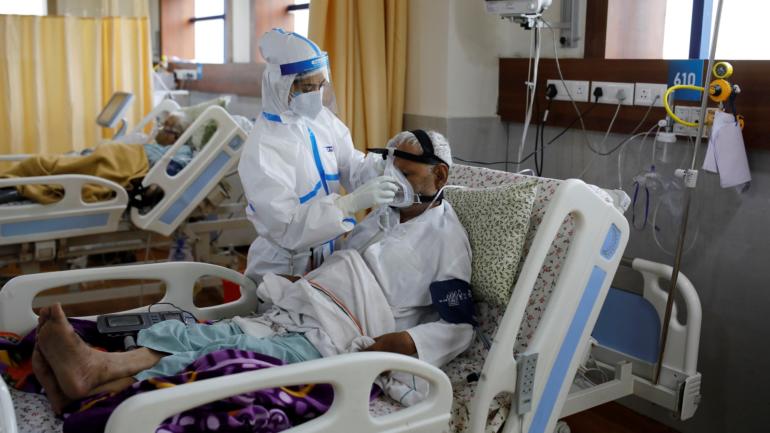With now more than 31 million cases globally, and nearly one million deaths, health experts say there’s growing concern the coronavirus pandemic could get even worse in the coming months. India now has over 5.6 million cases with 90,000 deaths, and could surpass the United States for the most number of cases. The United States hit a grim milestone this week reaching 200,000 deaths and a top health official says 90% of the U.S. population is still at risk of getting sick. Europe is now experiencing a second wave of infections. On Tuesday, the British government announced new restrictions including working from home.
Joining the discussion:
- Chris Smith is a Clinical Lecturer in Virology at the University of Cambridge.
- Will Humble is the Executive Director of the Arizona Public Health Association.
- Joseph Williams is the Senior News Editor with U.S. News and World Report.
- Neha Dixit is an independent journalist who covers New Delhi.
- Dr. Pankaj Solanki is the medical director and owner of a COVID-19 dedicated hospital.
For more:
At a Wednesday hearing on the U.S. handling of COVID-19, Dr. Anthony Fauci had a heated exchange with Kentucky Republican Senator Rand Paul over Paul’s claim that New York’s infection rate was down because it achieved herd immunity. Take a look. pic.twitter.com/Gxj0uQZESj
— CGTN America (@cgtnamerica) September 23, 2020
Boris Johnson announced a series of new coronavirus restrictions, including earlier pub closing times, as the British government tries to quell a second wave of infections https://t.co/AAlCNNrbWg
— The Wall Street Journal (@WSJ) September 22, 2020
A single decision by the government – the harsh, quick lockdown with among the smallest relief packages in place – will have a catastrophic effect on generations, with a sudden slip into a poverty that is much harder to escape. #NationalUnemploymentDayhttps://t.co/Mnu4ZjmXhk
— The Wire (@thewire_in) September 17, 2020
 CGTN America
CGTN America

